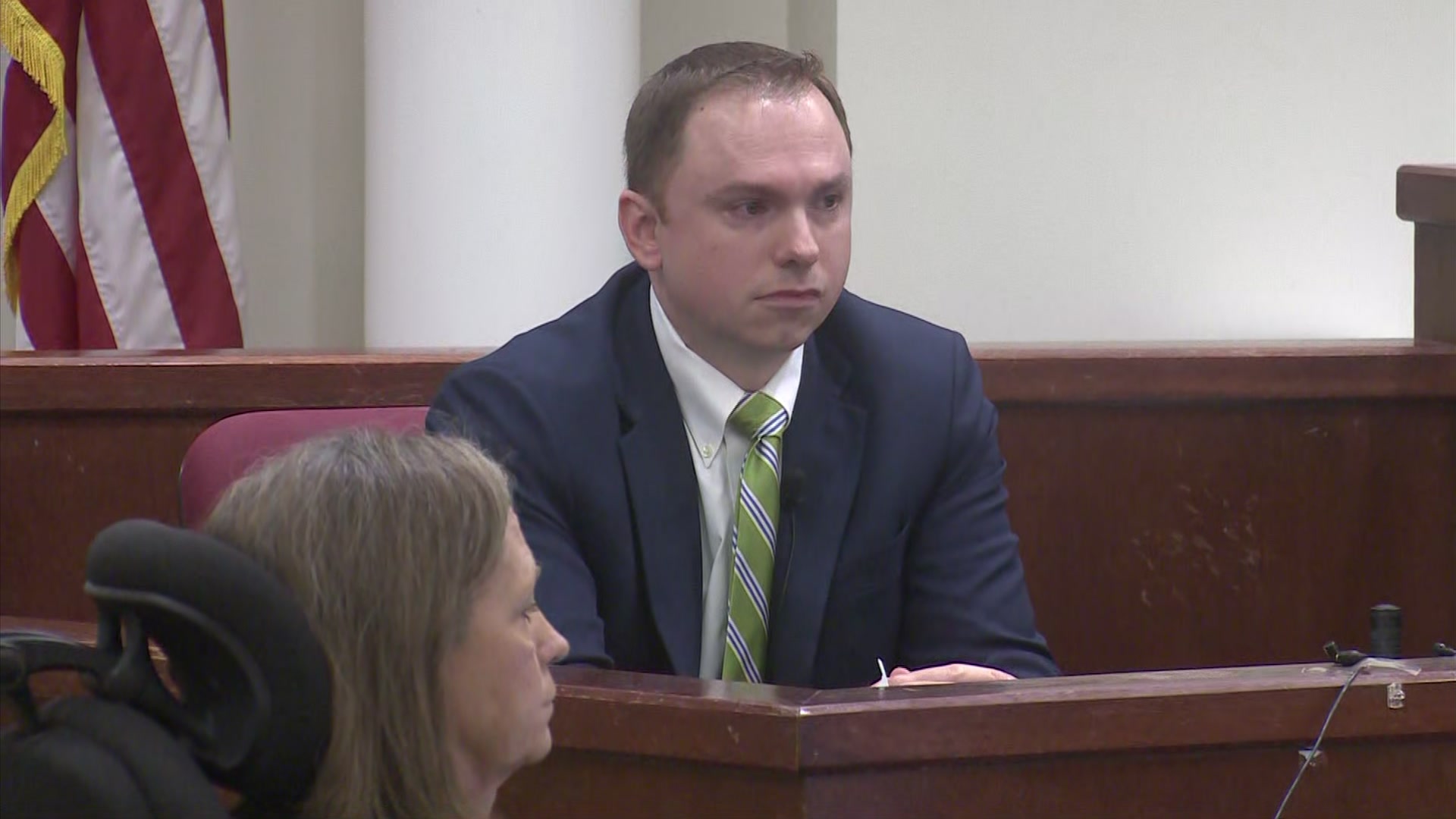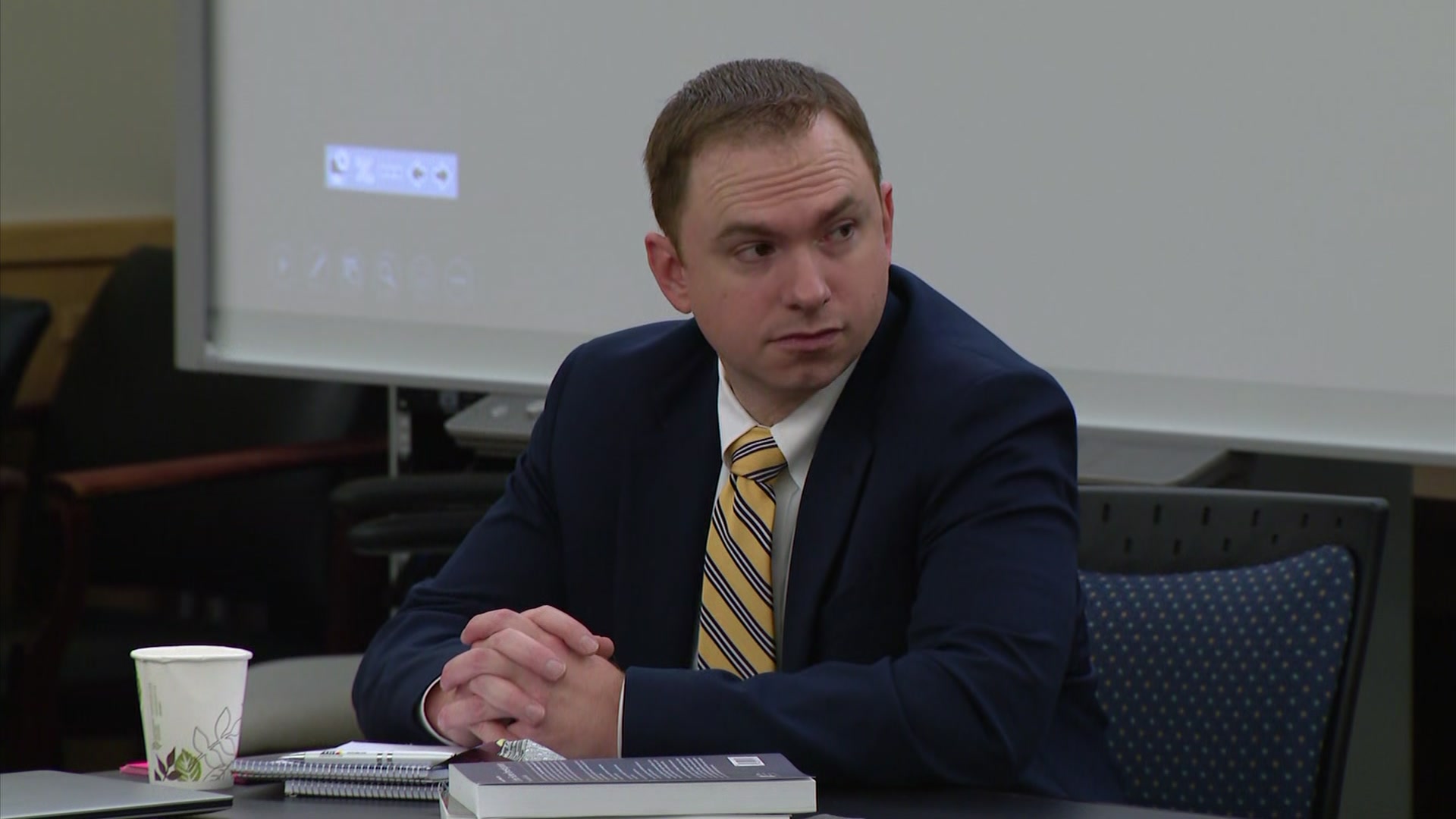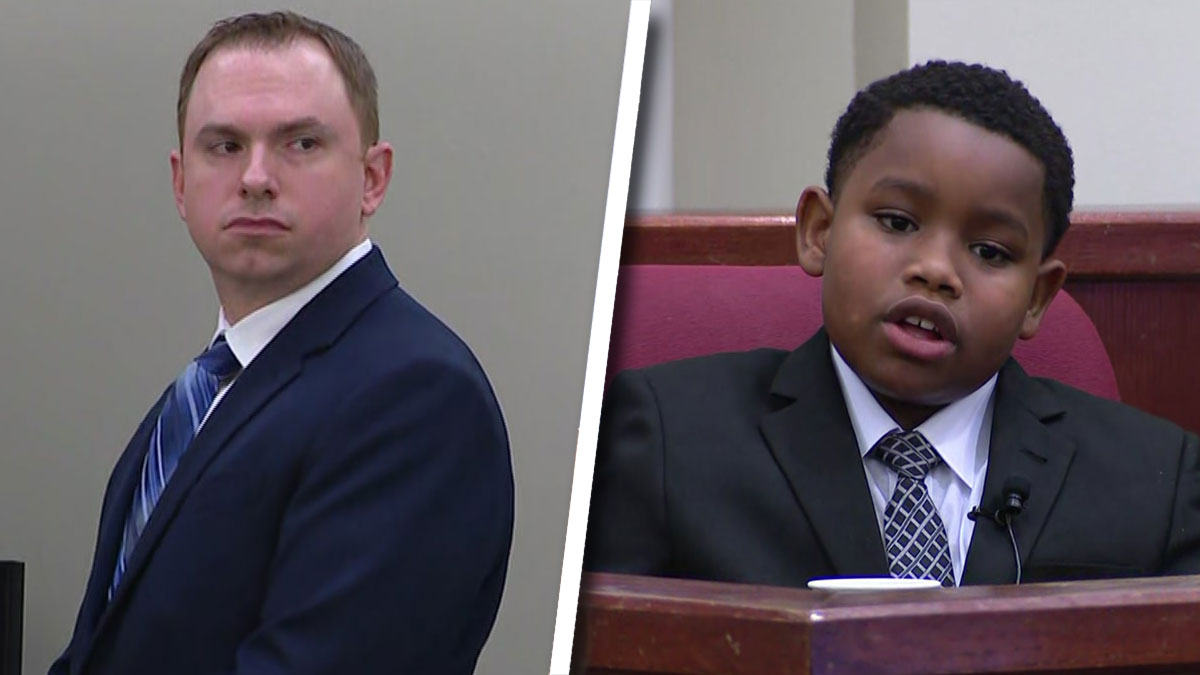Few know what it’s like to be Atatiana Jefferson’s family. Allisa Findley is one of them.
Her beloved brother is Botham Jean.
“I know what it’s like to be in this trial and have to keep your emotions in check,” said Findley outside the Tarrant County Courthouse in downtown Fort Worth.
Jean is the young accountant shot and killed in his own home by former Dallas police officer Amber Guyger, one year before former Fort Worth police officer Aaron Dean shot and killed Atatiana Jefferson in her own home.
Get DFW local news, weather forecasts and entertainment stories to your inbox. Sign up for NBC DFW newsletters.
Guyger testified in her own defense. Findley sat in the courtroom Monday as Dean took the stand in his own defense.
“[There are] so many similarities between Amber Guyger’s testimony and Aaron Dean’s. Yes, the crocodile tears on cue, the various terms like ‘silhouette’ and ‘I feared for my life,’” she said. “I couldn’t help but wonder if there was a manual somewhere on what terms to use when you shoot someone in the comfort of their own home.”
Time will tell if Dean’s decision to testify will resonate with the jury in his trial.
Jurors in Guyger’s case found her guilty of murder and sentenced her to ten years in prison.
AARON DEAN TRIAL
“I think he’s doing good actually,” said Dallas defense attorney Heath Harris about Dean. “He’s a trained public speaker! That’s what they do in the police academy.”
NBC 5 asked Harris, a former prosecutor who is not associated with Dean’s case, to provide insight into his testimony and the impact it could make on jurors.
“Advantages are that you can connect with that jury. You can let them know: Hey look, just like I did every night when I was serving, I’m here for you and I’m prepared to answer for my actions,” said Harris.
Criminologist Alex del Carmen, a leading expert in law enforcement best practices and procedures, is also not associated with Dean’s case but agreed to provide insight.
“I think it is very common that a police officer would simply take the stand,” said del Carmen. “In a narrative form saying, ‘look when I drew my weapon, I was fearful for my life.’”
Del Carmen says there are far-reaching lessons to be learned in Jefferson’s death.
“I think for those of us who use all of these experiences to train police officers on a daily basis, we are already using it,” he said. “We’re using the video, we’re using those circumstances to train officer to make sure that you know there are unintended consequences that may actually happen as a result of them not announcing that they are police officers.”
Del Carmen says regardless of whether a police-involved shooting is justified, situations are used as a training tool, “because those experiences are invaluable as we craft, as we make that new police officer in the 21st century that’s 21 years old getting out of the police academy.”
Dean endured blistering cross-examination in which he admitted he violated some procedures the night he shot Jefferson.
“You can have bad policing and still act in self-defense,” argued Harris.
Harris says there may be a reason behind the, at times, combative back-and-forth with the prosecutor.
“Whether [prosecutors] are trying to make it combative or appear to be combative because they’ve gotten so much slack from the community because of the fact it took three days to present their case, it’s not a difficult case,” he said. “I think the prosecution has done a very thorough job. It’s going to come down to the jury.”
As a reminder, Harris said the "court of public opinion" does not matter in this high-profile trial.
“[Dean’s] going to have to calm down, try to connect with that jury and quit fighting with the state, but I think the state is trying to make it seem like it’s a combative situation because they don’t want the Black community over there saying: ‘Here we go again. Another African American gets killed and you guys don’t care.’ That’s what I see,” he said.
It is Dean’s demeanor and that of the jury that stood out to Findley.
“His demeanor stood out to me. He did not seem remorseful. He seemed very defensive and privileged,” she said. “[Jurors] seemed very into the testimony. They were really attentive and there were no signs, no cues as to which way they were leaning.”
There is one moment Findley says she believes will lead to a conviction.
“When the prosecution asked [Dean] about his intent, he did say he intended to kill Atatiana Jefferson, similar to Amber Guyger,” she said. “I know for a murder conviction you must show intent and the prosecution was able to get that out of him.”
Findley, who lives out of state and is in Fort Worth for other engagements, says she was happy to be able to be in the courtroom.
She says she has provided her support to Jefferson’s family by giving them tips for the courtroom.
“I said make sure you stay hydrated, make sure you have candy, make sure you have your face in check,” said Findley.
Findley also provided Jefferson’s family insight on what life, after this trial ends, will likely entail.
“We got a murder conviction, we got a sentencing but four years later, we still grieving. We’re still missing Botham,” she said. “No matter the verdict, it’s still the rest of your life.”




